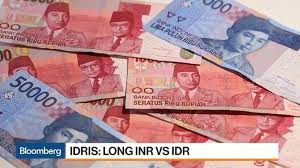
The Indonesian rupiah touched its lowest point over 20 years which prompted the country’s central bank to say that it will need to intervene to control the situation.
According to media reports, foreign exchange and bond markets would be the areas where it would intervene, said the Bank of Indonesia.
Noting a drop of 8.93 per cent since the beginning of the year, the rupiah dropped to 14,777 per dollar which is the lowest since 1998.
The Indonesian rupiah has been amongst the worst performing currencies in the region and this has been influe4nced by the current account deficit of the country and the problems in the emerging markets because of the fall in eth Turkish lira.
"The high foreign-ownership on bonds coupled with Indonesian corporates' increased USD debt are also rendering (the Indonesian rupiah) prone to more weakness," Vishnu Varathan, head of economics and strategy at Mizuho Bank, told the media.
According to Moody's, foreign currencies account for a largest part of the 41 per cent government in the largest economy in Southeast Asia. Those debts would become more expensive ot serve if there is a further fall in the rupiah.
"If credit spread rise further on (emerging market) risks and oil remains elevated ahead of Iran sanctions (set to bite in November), the risks of breaching 15,000 is a clear and present danger," Varathan warned. The country’s import bill would be increased if there is an increase in oil prices.
When oil prices go up, it contributes to an increase in the country's import bill.
But according to DBS economist Radhika Rao, there might not be much impact of the intervention by the country’s central bank.
"Authorities have actively supported the (foreign exchange) and bond markets, during recent bouts of volatility. In midst of a broader slide in regional currencies, intervention attempts help to smoothen the downdraft but it will be a challenge to reverse the direction," Rao said.
A number of steps so far this year has bene undertaken by the Indonesian central bank which includ3es four rate hikes since May this year – the latest one being done last month, to provide support to the currency. The central bank has also tapped into the foreign cash reserves to push up the rupiah.
Indonesia's current account deficit "makes it prone to a funding crisis", said Tuan Huynh, Deutsche Bank Wealth Management's chief investment officer for Asia Pacific, in a recent report. Huynh said that volatility and the value of the rupiah would be the main drivers of the monetary policy of Indonesia for the rest of this year.
"The key triggers for any further rate hike would be a further strengthening of the USD or the widening of the current account deficit caused by strong domestic demand."
More rate hikes are predicted by the DBS analysts in a note last week.
"For now, markets see Indonesia working hard to maintain macroeconomic stability e.g. hiking rates more to fend off exchange rate volatility and keeping to fiscal consolidation," they said.
(Source:www.cnbc.com)
According to media reports, foreign exchange and bond markets would be the areas where it would intervene, said the Bank of Indonesia.
Noting a drop of 8.93 per cent since the beginning of the year, the rupiah dropped to 14,777 per dollar which is the lowest since 1998.
The Indonesian rupiah has been amongst the worst performing currencies in the region and this has been influe4nced by the current account deficit of the country and the problems in the emerging markets because of the fall in eth Turkish lira.
"The high foreign-ownership on bonds coupled with Indonesian corporates' increased USD debt are also rendering (the Indonesian rupiah) prone to more weakness," Vishnu Varathan, head of economics and strategy at Mizuho Bank, told the media.
According to Moody's, foreign currencies account for a largest part of the 41 per cent government in the largest economy in Southeast Asia. Those debts would become more expensive ot serve if there is a further fall in the rupiah.
"If credit spread rise further on (emerging market) risks and oil remains elevated ahead of Iran sanctions (set to bite in November), the risks of breaching 15,000 is a clear and present danger," Varathan warned. The country’s import bill would be increased if there is an increase in oil prices.
When oil prices go up, it contributes to an increase in the country's import bill.
But according to DBS economist Radhika Rao, there might not be much impact of the intervention by the country’s central bank.
"Authorities have actively supported the (foreign exchange) and bond markets, during recent bouts of volatility. In midst of a broader slide in regional currencies, intervention attempts help to smoothen the downdraft but it will be a challenge to reverse the direction," Rao said.
A number of steps so far this year has bene undertaken by the Indonesian central bank which includ3es four rate hikes since May this year – the latest one being done last month, to provide support to the currency. The central bank has also tapped into the foreign cash reserves to push up the rupiah.
Indonesia's current account deficit "makes it prone to a funding crisis", said Tuan Huynh, Deutsche Bank Wealth Management's chief investment officer for Asia Pacific, in a recent report. Huynh said that volatility and the value of the rupiah would be the main drivers of the monetary policy of Indonesia for the rest of this year.
"The key triggers for any further rate hike would be a further strengthening of the USD or the widening of the current account deficit caused by strong domestic demand."
More rate hikes are predicted by the DBS analysts in a note last week.
"For now, markets see Indonesia working hard to maintain macroeconomic stability e.g. hiking rates more to fend off exchange rate volatility and keeping to fiscal consolidation," they said.
(Source:www.cnbc.com)





